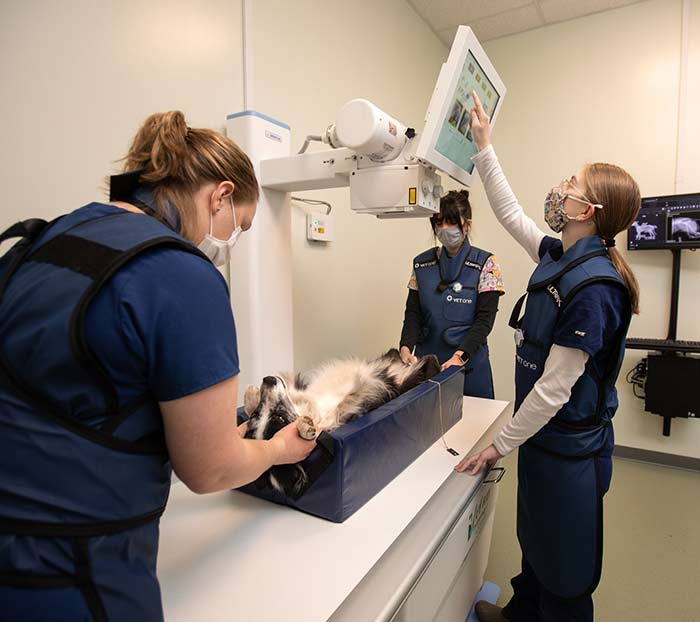California
Veterinary Technology Program Accredited
The designation comes from the Committee on Veterinary Technician Education and Activities of the American Veterinary Medical Association.

Pennsylvania Western University offers two “vet tech” degrees: a two-year Associate of Science in Veterinary Technology and a four-year Bachelor of Science.
Program accreditation is designed to verify that a program meets nationally recognized standards of academic and professional excellence. Before a program is accredited, representatives from a recognized accrediting agency review all aspects of the degree program, including its curriculum, faculty credentials and student outcomes. The team also holds an in-person “site visit” at the university.
The CVTEA offers initial accreditation to new programs such as PennWest's, which began in 2019. The vet tech program will remain on initial accreditation until achieving full accreditation. The full accreditation site visit is scheduled for 2026.
“Graduation from a CVTEA accredited program is a prerequisite for the licensure examination,” said Dr. Brenda Fredette, “This accreditation ensures our program provides students with the competencies and skills necessary for today’s veterinary practices.”
About the veterinary technology program
Students seeking an associate or bachelor’s degree in veterinary technology work with live animals on campus as they master practical skills in animal care. Coursework consists of classroom theory, hands-on training and 240 hours of clinical experience.
PennWest's associate degree in veterinary technology prepares graduates to seek an entry-level position in two years of full-time study. The bachelor’s degree offers electives in veterinary technology specialties and an advanced clinical experience.
Classes are held in new state-of-the-art laboratory facilities in Eberly Hall at PennWest California.
The space features a radiology room; surgical suite; pharmacy; isolation and recovery rooms; dog, cat and rabbit housing; dog yard and three lab rooms. A lounge area in the center of the first-floor suite is for student collaborations.